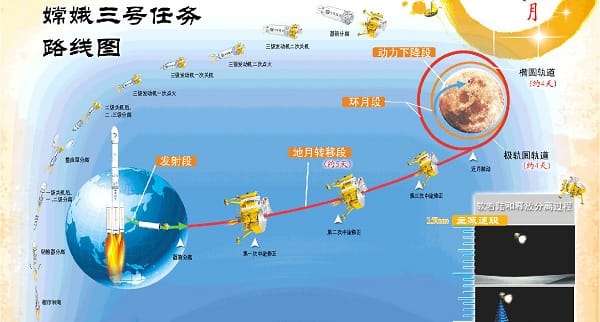Since President Xi Jinping came to power at the start of 2013, the “Chinese dream” has become his marching slogan. When in December, China’s rover mission the Yutu (Jade Rabbit) became the first spacecraft in almost 40 years to land on the moon, it seemed the perfect culmination of a year in which Xi has consolidated power.
Of probes and purges
Yet, these have been accompanied by high-level probes on officials seldom witnessed in China. The courtroom drama of Bo Xilai’s corruption trial in the past year gripped the Chinese public. Now the arrest of Zhou Yongkang, a retired member of the Politburo and the highest ranked Chinese official to have ever been investigated for corruption, looks set to upstage Bo’s trial.
It has been suggested that President Xi and the Communist Party elite are paranoid about an Arab Spring-style collapse of their rule. Around the time of Zhou’s arrest in December, official newspapers in China drew much attention and praise to an anonymous online posting which said that “we support Chairman Xi Jinping because we don’t want to become a second Libya”.
It remains to be seen how this latest corruption probe pans out, and the ramifications it has on the dynamics of the Chinese leadership.
China and Japan, again
The latest news that China is considering reorganising its seven military regions into five, so that it can respond more swiftly to crises, will not be reassuring to its Asian neighbours. Such a reorganisation is expected to enhance the Chinese military’s capability of launching swift attacks in the disputed territories in the South and East China Sea.
The remarkable thing is that despite all the sound and fury of clashes between China and Japan over disputed maritime territory, their economic relations have stayed very much intact – and thankfully so. The exchange of high-level business delegations between the two countries has continued unabated. This suggests a conscious effort on the part of the Chinese leadership to delink trade from politics, and looks set to continue in the year ahead.
It’s the (domestic) economy…
What should be watched most closely in the new year, however, are China’s domestic economic reforms . Bold reforms announced after the Third Plenum in November include liberalising the currency and interest rate regimes, and changing the allocation of credit in the financial system.
If China does not reform its current mechanisms of growth, debt levels will rise, and the country could face either a financial crisis or a decade of economic stagnation by 2020. But the very nature of the reforms will cause annual growth rates to slow sharply to 3-4 per cent, down from the current 7 per cent. This could have adverse social and economic impact in the short term.
Still, if China manages to navigate around this successfully, its economic success story will perpetuate itself well beyond the Year of the Horse.
Photo Credit: China Aerospace Science and Technology Corporation
Sources:
The Year of the Horse [Foreign Policy, 31 December 2013]
Why Chinese-Japanese Economic Relations Are Improving [Foreign Affairs, 30 December 2013]
Reaching for the moon [The Economist, 21 December 2013]




